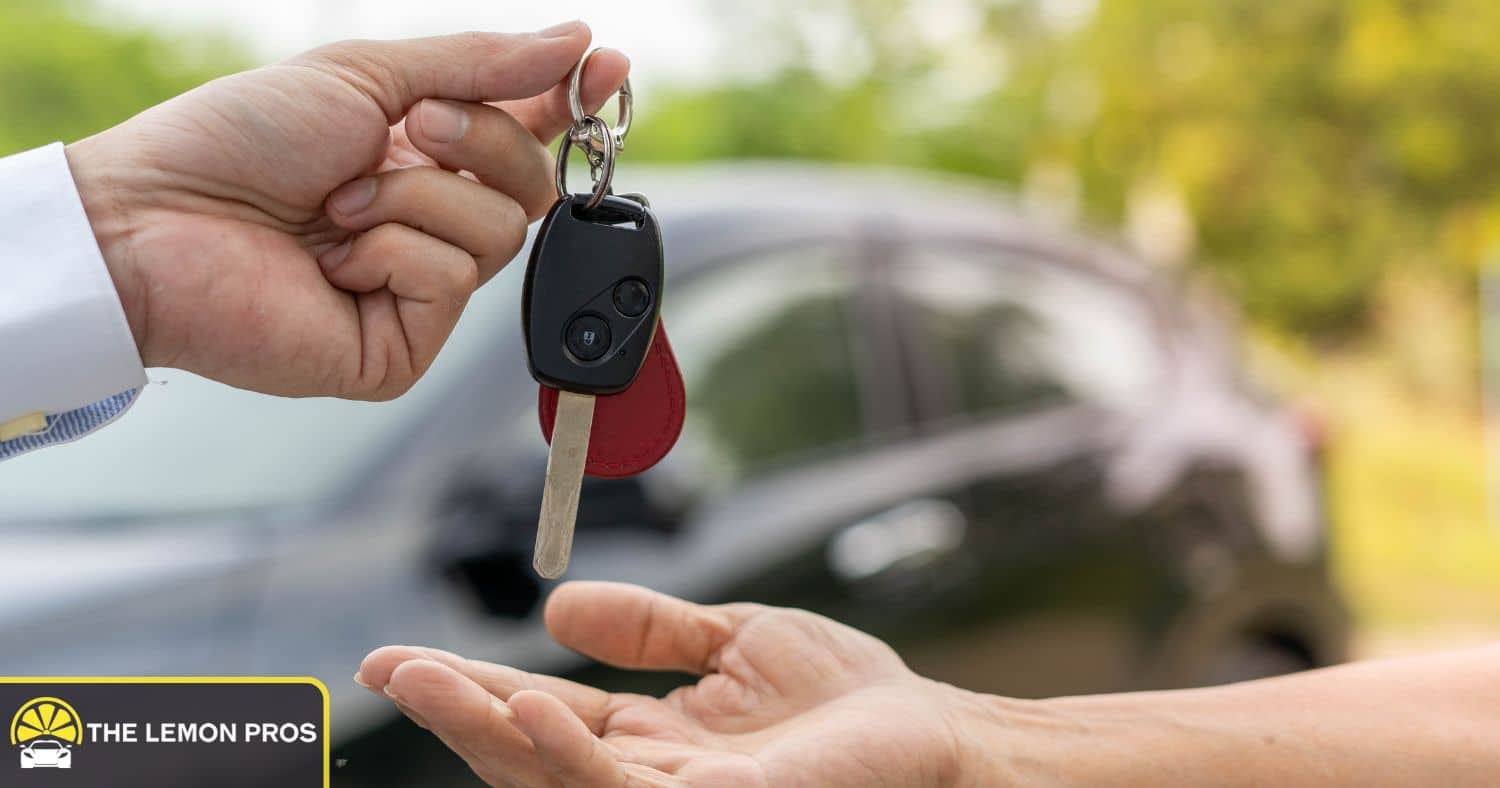
How to Handle New Car Issues and Get a Resolution
Buying a brand-new car should always bring peace of mind, not problems. After all, new vehicles are expected to be reliable and free from defects. Yet sometimes, even right off the lot, a car can be more burdensome than the used one you were previously driving.
For this reason, lemon laws were created to protect the consumer. These laws give you a way to get a resolution when you are left with a faulty new vehicle. If the car has a major defect that can’t be fixed in a reasonable amount of time, you don’t want to wait to file a claim.
The Lemon Pros fight every day for the rights of new car buyers. With a practice area centered on California’s Lemon Law, we know how to get compensation for our clients. We also offer free consultations, so nothing is stopping you from moving forward. Don't hesitate, contact us today.
In this guide, we cover the top new car issues you may experience and tell you what to do next. We examine why defects happen to brand-new cars and give you reasons to consider hiring a Lemon law attorney.
Table Of Contents
Common New Car Issues

Even cars right off the lot can have problems. The problems may take time to show up or reveal themselves immediately. From our lemon vehicles list, you can see some in-depth examples of problems that have come to light recently. Here are some to consider:
Mechanical defects: These issues can be stalling, rough idling or persistent warning lights. They could also be jerky shifting, slipping gears or hesitation. For example, the 2024 Toyota Tacoma has been plagued with sudden power loss and shifting issues, while the 2024 Chevrolet Silverado and GMC Sierra 1500 were recalled because of a manufacturing defect with the 6.2L V8 engine that led to failure.
Electrical system failures: Electrical glitches can result in faulty sensors, power window failure, dead screens or malfunctioning connectivity. One example is with the 2020-2024 Polestar 2 EVs that has a major recall due to the rearview camera malfunction, thereby increasing the crash risk.
Brake & steering problems: If the car pulls to one side, squeaks or has a spongy pedal, there’s an issue that needs to be addressed. For example, the 2024 Honda CR-V and Accord received complaints about the sticky steering system, which raises safety concerns.
Leaky seals or gaskets: New cars should never leak fluids, but that hasn’t stopped a recall on the Honda Passport for a fuel leak from defective manufacturing.
Paint, finish and body defects: Misaligned doors, factory color issues and rattles are never acceptable on new cars. The hood and wheels of a car are supposed to be designed to handle small rock chips and very minor damage, such as scratches, without ruining the new paint. Kia had to issue a recall on the 2024 Sportage because of roof trim pieces that would detach while driving.
The bottom line is that there should never be irreparable issues with a new car. None of these defects is considered acceptable.
Why Do These Issues Happen in New Cars?
While it’s normal to experience problems with a used car, no one expects that these issues would occur with something new, but there are several reasons why they happen.
Manufacturing defects: Even the best manufacturers can experience an error on the assembly line. One mistake can lead to massive problems down the road. However, the dealership is not allowed to sell unsafe cars and must be held responsible when they do.
Software glitches: Modern vehicles are jam-packed full of new technology, making them more prone to failure. Defects with the safety features, Bluetooth and navigation can all stem from bad software.
Post-delivery issues: There’s also the chance that an issue arises once the vehicle is delivered. Dealer prep, environmental factors and transportation problems can all cause headaches.
What to Do When You Face New Car Problems

You don’t have to get frustrated when dealing with new car problems. Whether you are facing an unrepairable warning light or an annoying noise, you need to act quickly. Knowing these steps can help you protect your investment and get compensation through California’s Lemon Law, known as the Song-Beverly Consumer Warranty Act.
Document the Issue
You bear the burden of proving that the defects exist and that they are irreparable. For that reason, it’s essential that you document everything. With every issue and even the most minor damage, you want a record of the following:
- Date it first occurred
- Nature of the problem
- Specific symptoms it creates
- Repair invoices and service records pertaining to the incident
You also want to have the lease or sales contract and warranty information on hand.
Contact the Dealership
The next step is to contact the dealership directly. Describe the problem in detail and request a thorough inspection by the service manager. You have the right to ask how long it will take and be persistent, but try to keep all communication professional and respectful.
If you can’t get anywhere with the dealership, you could call the customer support line for the manufacturer or send an email. This information is typically found online.
Understand Your Warranty
It’s now time to understand what you are facing. Review the manufacturer’s warranty terms to see what’s covered. The bumper-to-bumper warranty typically protects everything on the car that’s not considered a consumable, while a powertrain warranty only covers the main components, such as the engine and transmission.
You should also know the length of the warranty, any limitations it outlines and make sure that the problem falls within the guidelines.
Know Your Rights Under Lemon Law When Facing New Car Issues
Not every new car defect is going to be eligible for the Lemon Law, so it’s important to know the mileage regulations and additional terms. The California Lemon Law for new cars is fairly comprehensive, allowing for a lot of coverage. If you live in another state, you’ll want to research the regulations in your region instead.
In addition to understanding when the car is eligible, you should look at the possible resolutions of a Lemon law claim. The dealership or manufacturer may offer monetary compensation or a replacement vehicle for your troubles.
How Lemon Law Can Assist You With Persistent Car Problems

California Lemon Law protects drivers from major defects, offering more peace of mind during the car-buying process. With the written warranty in place and your careful research, you don’t need to worry about buying most new cars. If a major defect does occur, you can get compensation or a replacement vehicle under state law.
Is the Lemon Law only for new cars? No, there are some stipulations for used cars in California’s law, but the majority of protections are for new vehicles. Here are some basic guidelines when determining if a car qualifies for the California Lemon Law:
- The defect must substantially impair the value, safety or use of the vehicle
- The car warranty must cover the defect during the specified period it occurred
- The car may be financed or leased (you don’t have to be the owner)
- A reasonable number of repair attempts must have taken place without remedy (four when dealing with most issues, or two for serious safety concerns)
- The defect must have first shown up within 18,000 miles or 18 months of taking ownership of the vehicle
Additionally, the Lemon law claim must be filed within four years of when the defect first started. However, you don’t want to wait longer than necessary to get the process started.
Depending on the outcome of the claim, you may be issued a replacement vehicle, similar to what you are currently driving, but without the defect. The company can also issue a refund for the vehicle, known as a Lemon law buyback. If the defects aren’t too bad, the dealership staff or manufacturer may offer a cash-and-keep settlement or give you a service department gift certificate with the promise to continue repairing the vehicle. Before you sign any settlement, it’s best to talk to a lawyer.
Not only do lemon laws provide compensation and justice for consumers, but they also serve to protect others from getting into a defective vehicle.
How to File a Lemon Law Claim for Your Brand New Car
If you want to know how to start a Lemon law claim, the best place to begin is with a qualified attorney. An attorney focused solely on Lemon Law will be able to provide the best guidance for your case, helping to navigate the process while improving the likelihood of winning the claim. Most lawyers offer a free case evaluation, so there’s nothing to lose.
Before filing a claim, you will be required to send a detailed record of the case and a letter to the manufacturer, stating your intentions. By contacting the manufacturer directly, you give them the chance to settle out of court. However, there’s always the chance that the response won’t be favorable and you’ll have to proceed further.
Can You Return a Defective New Car in California?
It’s not a simple process to return a vehicle to the dealership, but it can be done. You will need to get approval from the dealership or manufacturer, which may sometimes require filing a Lemon law claim. There could be an additional cost to return the car, depending on the terms of your financing or lease. Until you get that approval, it’s important that you continue making your payments on time to avoid damage to your credit report.
How to Avoid Problems With Your New Car

The best thing you can do is learn how to avoid buying a lemon car in the first place. Here are a few tips to keep in mind:
Stay on top of regular maintenance. Have the oil changed and tires rotated as per the manufacturer-recommended schedule.
Inspect the car frequently to see if anything’s wrong. If you notice a problem, schedule the fix immediately. Start keeping track of the repairs and dates in case you need to file a claim later.
Take the car to the dealership for repairs. To ensure you’re covered in the future for a claim, you want to visit an authorized dealership for repairs.
Stay up to date about recalls. Check the NHTSA for recalls about your car and have the recalls repaired immediately.
Drive carefully. Avoid hard braking, high speeds and other aggressive driving habits that put your vehicle at risk of more wear.
Facing Issues With Your New Car?
Not every new car faces unresolvable problems, but you must remain proactive if you want to protect your investment. Act quickly on any concerns you have and leverage your consumer rights after the sale if necessary. We owe it to future customers to ensure new cars live up to their price.
If you need guidance after you leased or purchased a car, The Lemon Pros can help. As the best Lemon law attorney in California, we can help you prove your case and get a quick resolution. Contact us today for a free case evaluation.






